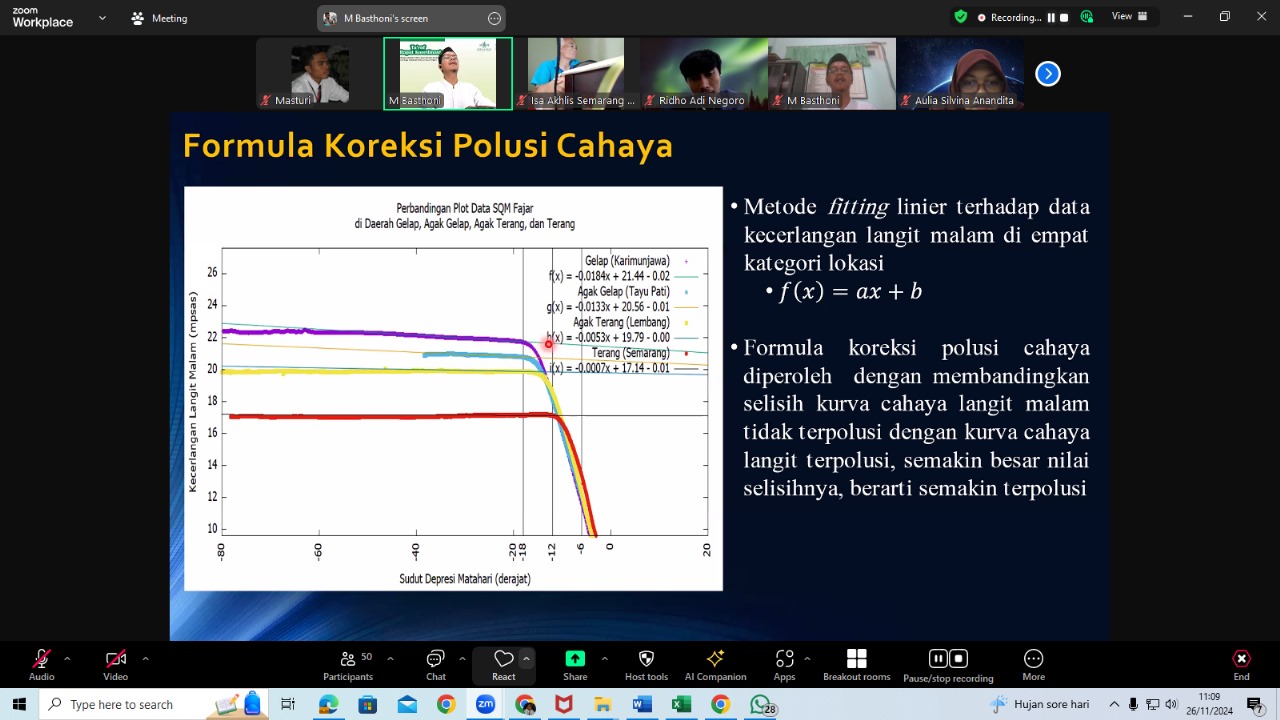Tuesday (11/26/2024), the Physics Study Program of Semarang State University (UNNES) held the 8th UNNES Physics Talk Series with the theme Falakiyah Goes to Campus: Observation of Dawn and Subuh Time online. This activity was attended by Physics students and lecturers who were not limited to the UNNES academic community, but also involved participants from various other universities who were interested in astronomy, especially in determining prayer times such as dawn and dawn. This webinar aims to explore the application of physics in astronomical observations, which have an important role in the lives of Muslims, especially related to the accuracy of prayer times.
As the main resource person, Dr. H. M. Basthoni, M.H., an astronomer who also serves as the Chairperson of the Falakiyah Institute of PWNU Central Java, shared very valuable insights regarding scientific techniques in observing dawn and dawn times. He explained the various challenges faced, especially the differences in dawn prayer times in various regions in Indonesia, and how technology can be used to improve the accuracy of determining prayer times, which are very important for Muslims. His presentation provided an in-depth overview of the scientific methods used in determining these prayer times.
After the presentation session, participants were given the opportunity to interact directly through a question and answer session. UNNES Physics students and lecturers, as well as participants from other universities, enthusiastically asked various questions related to the material that had been presented, such as the impact of light pollution on astronomical observations or alternative methods to improve the accuracy of dawn prayer times. Accurate determination of dawn prayer times also greatly influences the determination of fasting times, because the time for imsak and breaking the fast depends on the accuracy of dawn and maghrib prayers. Therefore, understanding the right way to observe dawn prayer times can improve the quality of fasting, as well as other worship. This activity is expected to provide deeper insight and enrich participants’ understanding of astronomy and its contribution to improving the quality of worship for Muslims in Indonesia.
The Physics Study Program Coordinator, Prof. Dr. Masturi, said that the presence of guest speakers in the study program’s routine talk series is expected to expand the knowledge of the Physics UNNES community, in addition to developing the study program’s sustainability in terms of the quality of the academic atmosphere. In addition, the presence of practitioners in activities like this is also an effort to bring the knowledge learned on campus closer to the reality that occurs in society.


